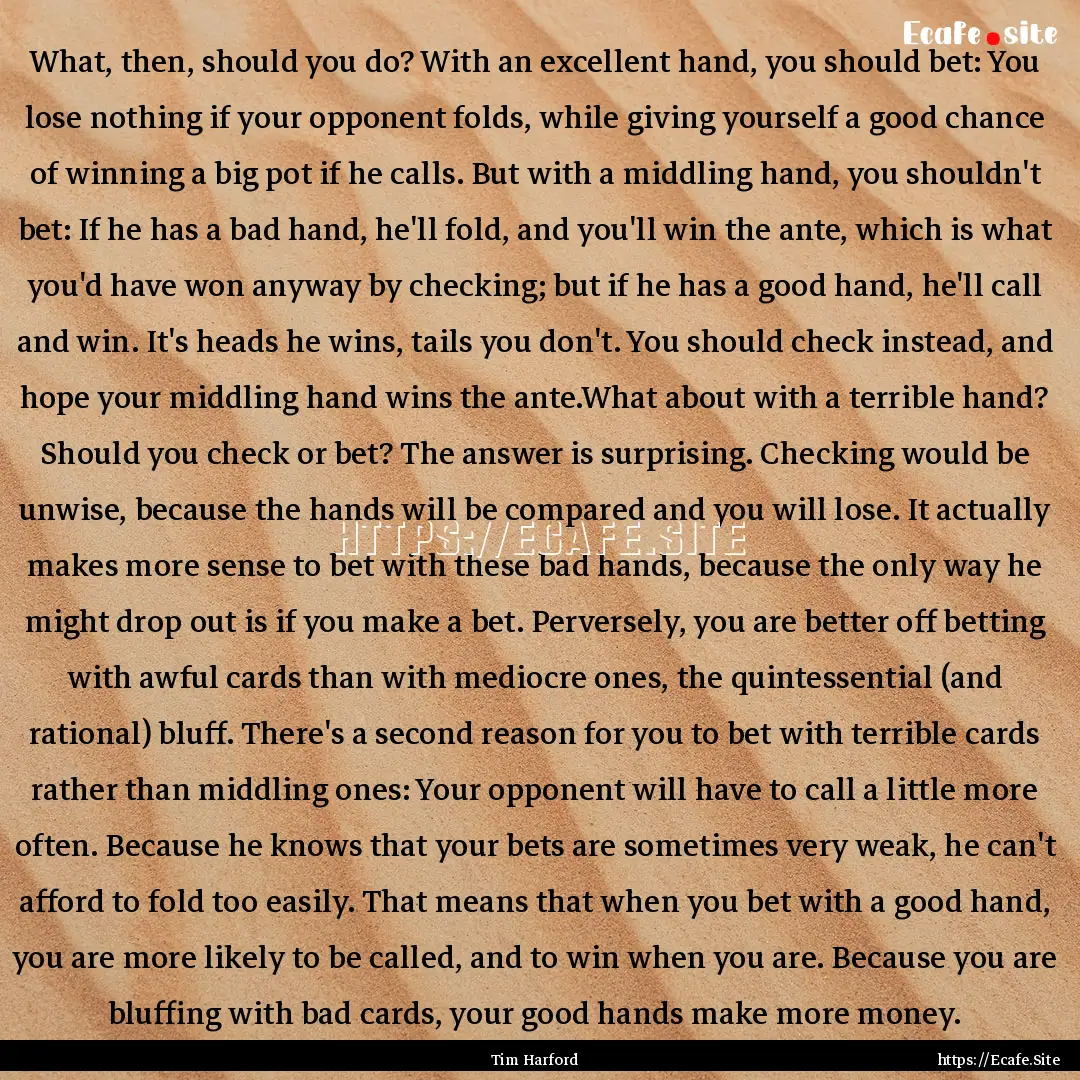
Report, if you have a problem with this page“ What, then, should you do? With an excellent hand, you should bet: You lose nothing if your opponent folds, while giving yourself a good chance of winning a big pot if he calls. But with a middling hand, you shouldn't bet: If he has a bad hand, he'll fold, and you'll win the ante, which is what you'd have won anyway by checking; but if he has a good hand, he'll call and win. It's heads he wins, tails you don't. You should check instead, and hope your middling hand wins the ante.What about with a terrible hand? Should you check or bet? The answer is surprising. Checking would be unwise, because the hands will be compared and you will lose. It actually makes more sense to bet with these bad hands, because the only way he might drop out is if you make a bet. Perversely, you are better off betting with awful cards than with mediocre ones, the quintessential (and rational) bluff. There's a second reason for you to bet with terrible cards rather than middling ones: Your opponent will have to call a little more often. Because he knows that your bets are sometimes very weak, he can't afford to fold too easily. That means that when you bet with a good hand, you are more likely to be called, and to win when you are. Because you are bluffing with bad cards, your good hands make more money. ”

Tim Harford
From : The Logic of Life: The Rational Economics of an Irrational World



